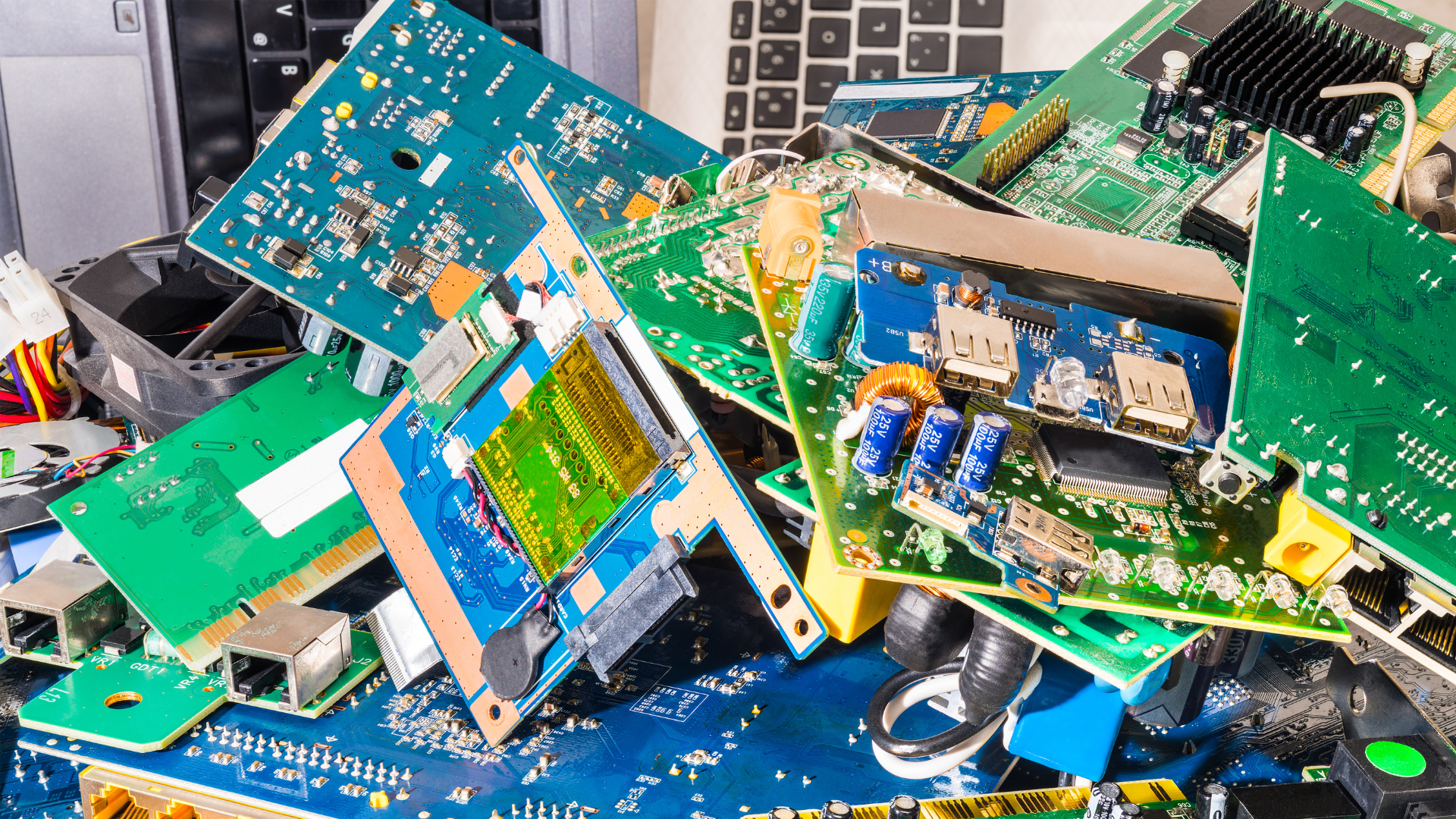

In the modern world, electronic devices are everywhere, such as smartphones and computers, all of which depend on intricate components like waste printed circuit boards (WPCBs). These boards contain valuable metals, but the methods for extracting these metals often result in significant environmental and health impacts. Exploring the present condition of WPCB recycling highlights the opportunities and difficulties encountered by this vital industry.
WPCBs, also known as waste printed circuit boards, are valuable sources of precious metals. Even though they contain smaller amounts of metals compared to base metals, they have higher concentrations of beneficial elements such as gold, silver, and palladium than those found in natural ores. This makes WPCB recycling economically appealing. While traditional recycling methods like smelting and refining have been adjusted for WPCBs, they encounter notable challenges..
Extracting precious metals from waste printed circuit boards (WPCBs) typically involves two main stages. First, the boards are crushed and milled or semi-autogenously ground. Subsequently, smelting is performed to extract the metals. The second stage involves hydrometallurgical treatment of the metal-rich matte to separate and recover the precious metals.
While developed countries often utilize pyro-metallurgical technologies for this purpose, these methods are complex and expensive, making them less viable for developing nations. Consequently, many regions, especially in countries such as China, India, and Nigeria, still rely on primitive recycling methods..
In developing countries, WPCB recycling often relies on rudimentary techniques. For example, WPCBs might be heated on coal-fired grills to melt solder and remove usable components using basic artisanal tools. Following this, materials containing precious metals are subjected to open burning and acid washing. These methods are not only inefficient but also environmentally hazardous.
The current methods of recycling have a significant environmental impact. When waste printed circuit boards (WPCBs) are openly burned, they release harmful substances such as brominated flame retardants (PBDEs) and polychlorinated dibenzo-p-dioxins (PCDD/Fs) into the air. Research has indicated that areas with unregulated recycling, like Guiyu in China, have alarmingly high levels of these toxins. This pollution not only harms the environment but also poses serious health risks to local communities. Furthermore, the recycling process produces waste gases and acidic solutions that are often managed inadequately. This can lead to further environmental pollution and health dangers for workers. Inadequate protective measures exacerbate these risks, making recycling activities unsafe and unsustainable.
The current recycling practices have adverse consequences, so there is an urgent need for more effective and environmentally friendly technologies. Modernizing WPCB recycling processes is crucial for reducing pollution and improving worker safety. This involves adopting integrated technologies that can efficiently recover precious metals while minimizing environmental impact. Efforts are underway to explore more sustainable approaches to WPCB recycling, but significant advancements are still needed. Developing countries, where the majority of e-waste recycling occurs, particularly need support in transitioning to better practices that balance economic viability with environmental stewardship..
The recycling of metals from WPCBs is a field with immense potential but also considerable challenges. While the precious metals contained in these boards are a valuable resource, current recycling methods, especially in developing countries, often result in severe environmental and health impacts. Advancing recycling technologies and practices is essential to harness the benefits of these valuable resources while mitigating their negative effects. The shift towards more sustainable and regulated recycling processes will be crucial in addressing the growing e-waste crisis and protecting both our environment and public health.